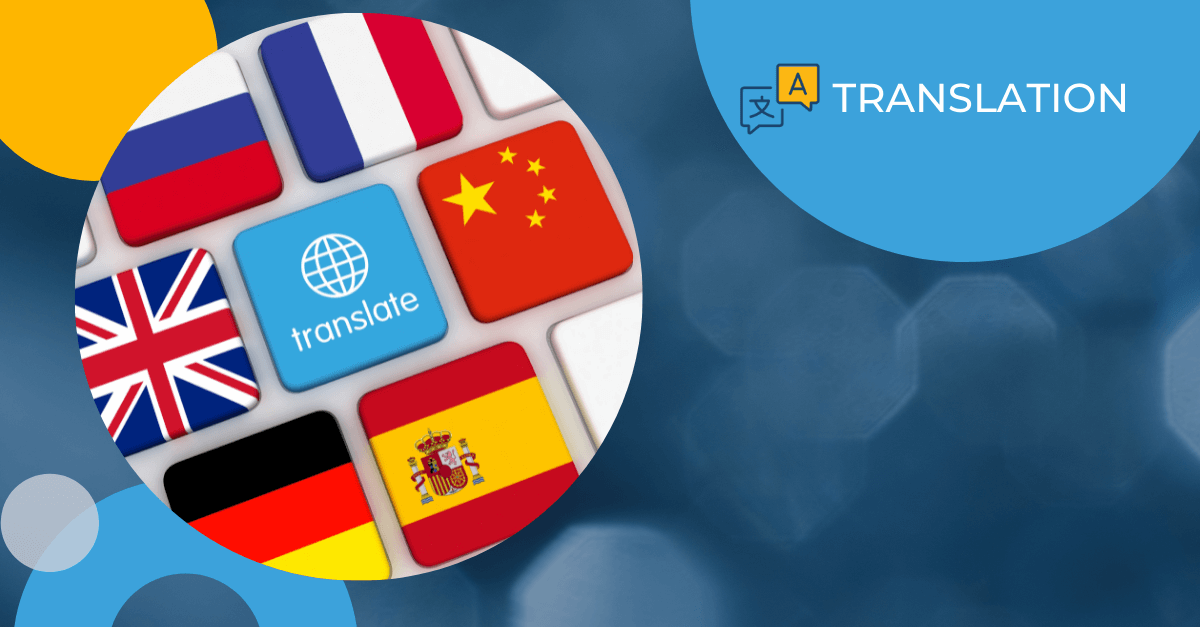In today’s global economy, technical documentation touches nearly every industry, including manufacturing, software, healthcare, and education. The far reach of international brands requires this documentation to appear in multiple languages for multiple markets. However, you may find it challenging to identify a reliable technical document translation services provider.
When translating technical documents, such as manuals or specifications, the core objective is to convert the words from one language into another accurately. Presenting this information in an easy-to-read and usable fashion in every target language is a daunting responsibility that relies on your language service provider (LSP). Your partnership with them is critical in communicating how a product works to consumers and local vendors.
Best practices require professional technical document translation services with subject-matter expertise, language expertise, and experience in authoring tools such as MadCap Flare, Articulate, Adobe products, and more. Doing so can help guarantee that translations appropriately convey all intended meanings in the proper format.
Professional technical document translation services are a key element for ensuring relevant ISO usage accuracy and reliability in documentation, especially in industries such as manufacturing, healthcare, and software development. Mistranslations can have severe consequences, including safety hazards, legal and regulatory liabilities, and damage to brand reputation.
To help ensure you find a professional language service provider that fits your needs, here are four essential questions to ask when vetting potential partners for localizing your technical documentation.
What kind of user documents does the LSP translate?
A professional LSP can fulfill multiple kinds of technical documentation that commonly require translation, such as user manuals, engineering specifications, scientific papers, and medical documents. This is advantageous for companies looking for a partner to manage their documentation to reduce cost and project turnover.
At Morningside, we translate user guides, operating manuals, MSDS, engineering specifications, patents, intellectual property, eLearning modules and courses, websites, software and applications, and medical device labeling. We can work with many different software applications, so you can let us do the layout and formatting work to produce the finalized documents in each language.
What is the LSP’s commitment to quality?
Is quality at the heart of your LSP’s operation? When quality becomes a primary focus for authoring projects, it ensures accuracy and smooth implementation from initial requests through on-time delivery. A competitive LSP will independently audit its quality systems and rigorously vet subject matter experts and translators. Industry standards and certifications, such as ISO 17100 for translation services or specific certifications in technical fields, can indicate the reliability and quality of a translation service.
Translation services handle confidential or proprietary technical information by implementing strict confidentiality agreements, secure file transfer protocols, and limiting access to authorized personnel only.
Our commitment to quality spans every stage of the project lifecycle. Morningside employs ISO 9001, 13485 and 17001-compliant processes and a 3-tier linguistic review process. As an additional step, we use a proprietary algorithm designed to preemptively identify potential risks – preventing quality errors before they happen. Our Quality Reliability Indicator (QRI) is designed to help ensure a reliable and repeatable outcome.
Tip: Industry standards and certifications such as ISO 17100 for translation services indicate the reliability and quality of an LSP’s services. They demonstrate a commitment to meeting internationally recognized standards for translation quality and process management.
How does the LSP ensure accurate translations?
Starting with a detailed evaluation process, an LSP should assess your authoring program, discovering which software you use or how your English is written. During this evaluation, your LSP should work on a Term Base and Style Guide for each target language. To verify the accuracy and quality of translations, you can request sample translations, conduct reviews by subject matter experts, use translation memory tools for consistency, and communicate feedback to the service provider.
To ensure seamless localization, Morningside begins the translation process with a complete localization and LQA of your software if the software is included in your translation needs. Then, the accompanying documentation can be translated to ensure all final UI strings can be referenced accurately. From the beginning of every partnership, we are happy to advise our clients on optimizing their authoring for translation and mitigate current and future concerns in the localization process while reducing time and costs.
Tip: Optimize technical documentation for translation by following best practices for writing and formatting. Provide reference materials and establish open communication channels with the LSP to streamline the translation process and reduce time and costs.
Does the LSP employ translators and technical writers who possess subject matter expertise?
Quality localization starts with stringent translator qualifications, including subject matter expertise. Best practices recommend using an LSP with translator certification and accreditation to ensure a high level of professional experience. Ask if your language services partner can provide translators who specialize in your specific area of need. The more specialized the translator, the more likely you will receive the highest quality localized product.
Working exclusively with qualified subject matter experts (SMEs) is part of our unwavering commitment to quality. Our quality policy requires rigorous vetting and training for our translators and interpreters. They must be fluent in the target language, have professional industry experience, and be experts in the related subject matter and terminology. Our professional translators and editors are accredited by leading translator associations, including, but not limited to:
- American Translators Association (ATA)
- National Association of Judiciary Interpreters and Translators (NAJIT)
- Institute of Translation and Interpreting (ITI)
- Société Française des Traducteurs (SFT)
When evaluating technical document translation services, specific criteria to consider include the expertise of translators in the relevant technical field, their language proficiency, quality assurance processes, turnaround times, and customer support.
To ensure that a translation service has subject matter expertise in your industry or technical field, you can inquire about their experience with similar projects, ask for samples or references, and assess the qualifications of their translators, such as certifications or relevant education. Effective communication with translation service providers includes clearly defining project requirements, providing reference materials, establishing a feedback loop, and maintaining open communication channels throughout the translation project.
Tip: Evaluate the qualifications and expertise of translators by considering certifications, industry experience, and references from previous projects. Look for LSPs that prioritize working with subject matter experts and provide evidence of their expertise.
Helping You Avoid Rush Projects
In navigating the landscape of technical document translation services, it’s essential to be proactive, avoiding the pitfalls of urgent projects that arise from delayed translation initiation. Often, clients commence translation efforts too late in the product life cycle, resulting in projects becoming excessively urgent, especially when they aim for global expansion simultaneous to the source language launch.
This scenario underscores the importance of timely engagement with language service providers (LSPs). Initiating translation projects promptly allows for a smoother transition into the global market, mitigating the stress and cost associated with last-minute rushes. Moreover, early involvement provides ample time for thorough linguistic and technical assessments, ensuring that translations accurately convey intended meanings across multiple languages and formats.
Businesses can foster a more collaborative and efficient partnership with their chosen LSP by prioritizing the commencement of translation endeavors. This proactive approach not only facilitates smoother project execution but also enhances the overall quality and effectiveness of translated technical documentation.
Tip: To avoid urgent translation projects, initiate efforts promptly in the product life cycle. Early engagement with your LSP allows for thorough assessments, ensuring accurate translations and smoother project execution.
How Morningside Can Help
We want to help ensure accurate translations, so we employ rigorous quality assurance measures such as requesting sample translations, conducting reviews by subject matter experts, and utilizing translation memory tools for consistency. Effective communication with your LSP is crucial to address any concerns or clarifications during translation. Initiating translation projects with us offers several benefits, including smoother project execution, reduced costs, and enhanced quality assurance. Early engagement ensures thorough assessments and accurate translations that convey technical information across diverse linguistic landscapes.
About Morningside
At Morningside a Questel Company, we take pride in offering highly professional technical document translation services to customers around the globe, and we’re here to assist you along the way. It’s never too early to prepare and plan for localization. How a document is written and formatted will directly impact the time and money it takes to translate it. Contact us today to learn more about how to save time and money with localization services.



